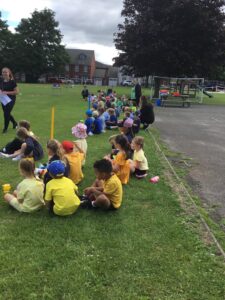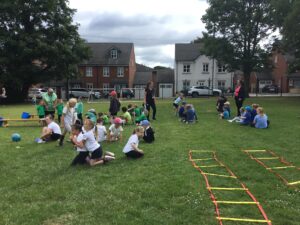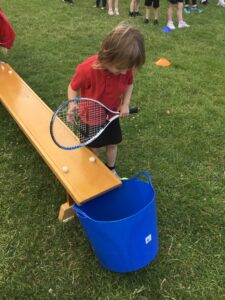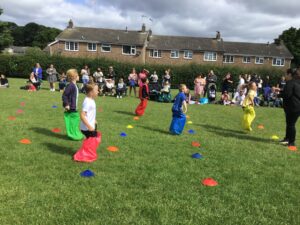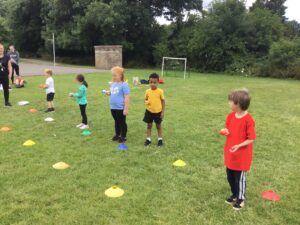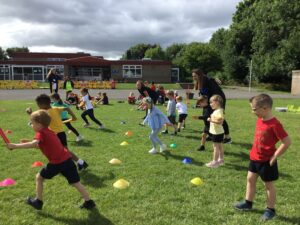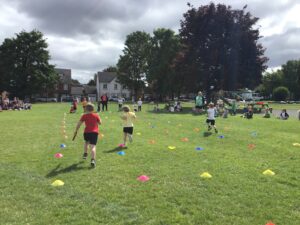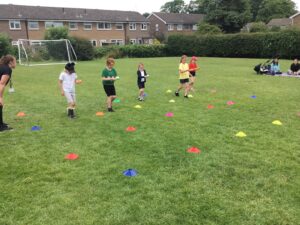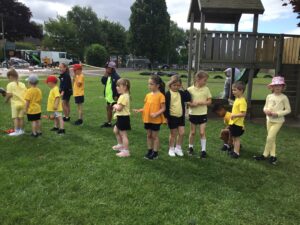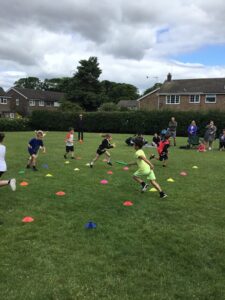spelling wc 11th July 2022
This week we are practising double consonant words.
occasion
possible
difficult
occasionally
disappear
appear
opposite
accident
We are healthy!
This week at nursery, we’ve been thinking about how we can keep ourselves healthy. On Tuesday, it was our Sports Day and the children had lots of fun taking part in all of the activities and races. The nursery staff were very proud of their achievements and we really appreciated all the support from parents. During the week, we’ve been making up our own games to keep us fit and we’ve also tried lots of different exercises under the trees in our outside area.
We’ve had many discussions about which types of food and drink help us to grow strong and which types are good for our teeth. There have been lots of new activities in the classroom to help us with our learning: we’ve cleaned and flossed pretend teeth, posted healthy foods into a large mouth and sorted foods into ‘healthy’ and ‘not so healthy’ categories. We’ve matched the correct prices to the fruit in our maths area and also played mini football in our small world area. Our home corner has been a healthy eating café.
At the end of our ‘healthy week’, we made fruit kebabs and the children exercised their fine-motor skills by cutting their own bananas and threading pieces of fruit onto paper straws. Hopefully, everyone will be feeling fit and healthy on Monday as it’s the penultimate week of this academic year!
As the temperatures are set to soar, please remember to send your child to school with a water bottle, sun hat and sun cream. It would really help our staff if sun cream could be applied before the start of the day and then we can help the children to top it up during the day.
Many thanks.
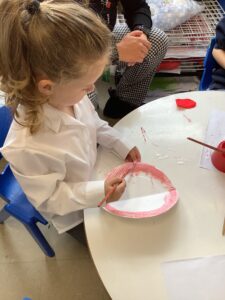
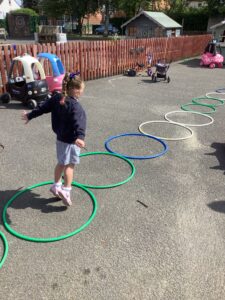
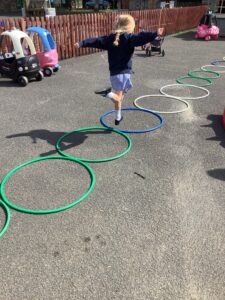
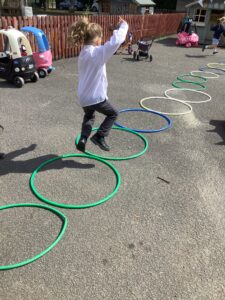
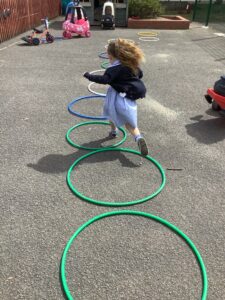
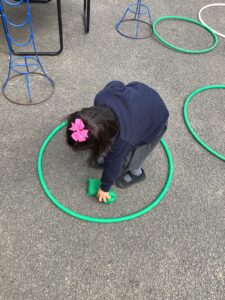
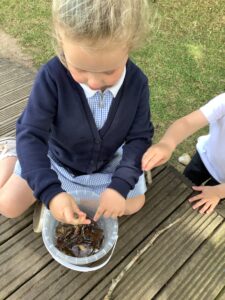
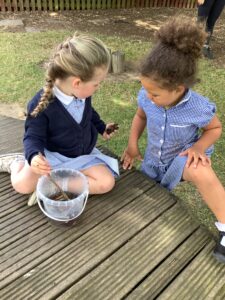
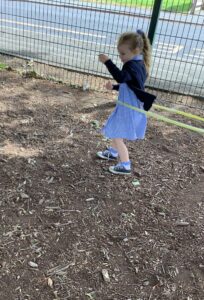
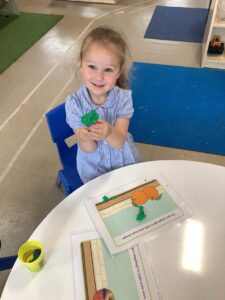
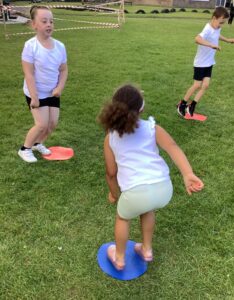
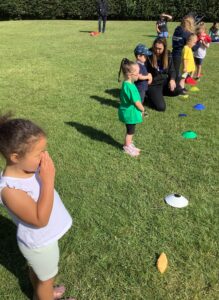
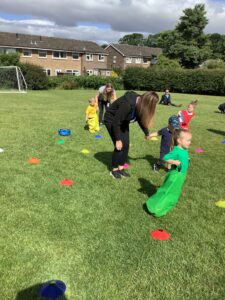
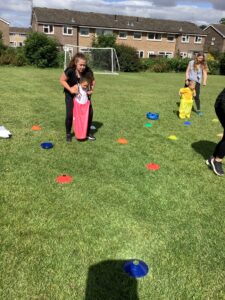
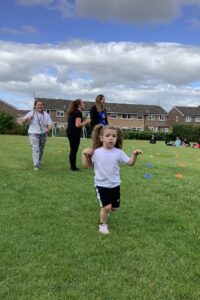
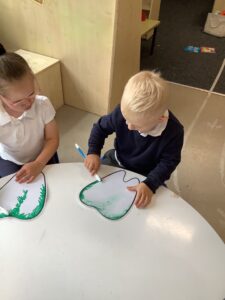
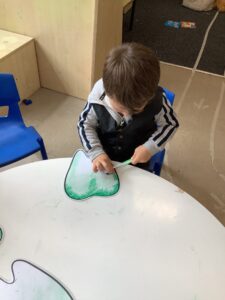
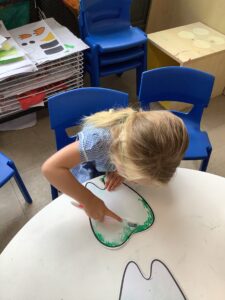
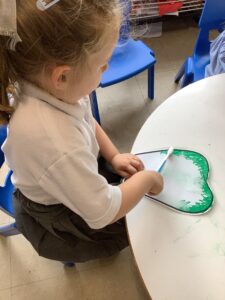
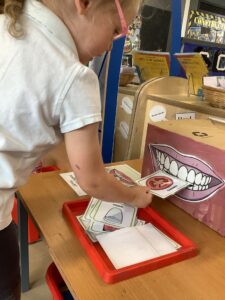
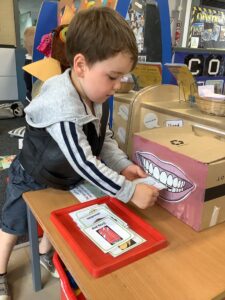
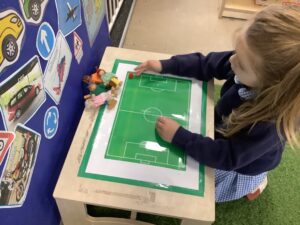

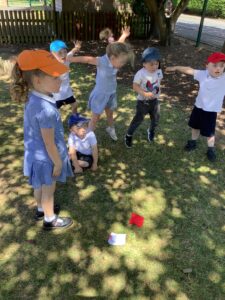
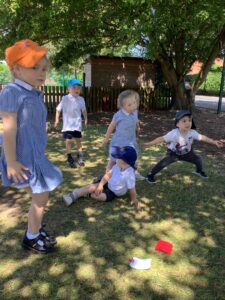
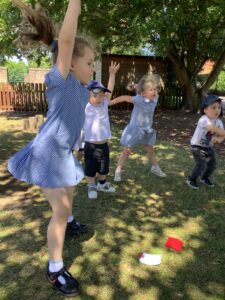
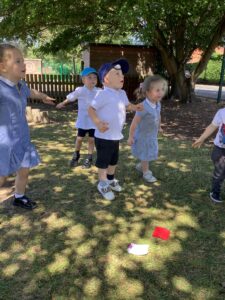
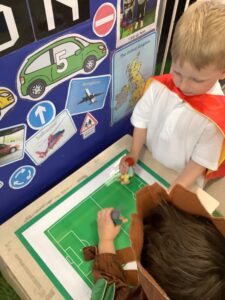
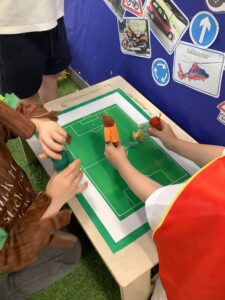
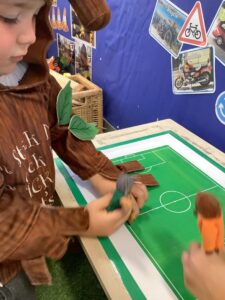
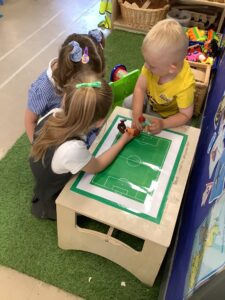
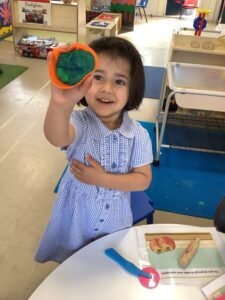
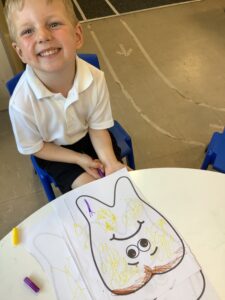
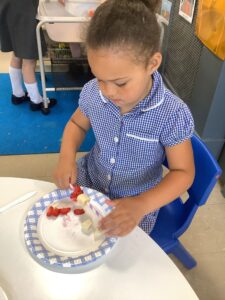
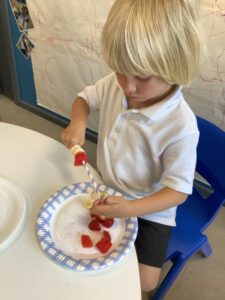
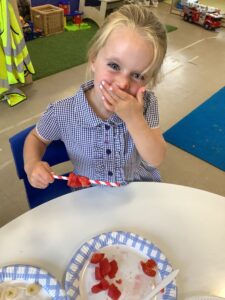
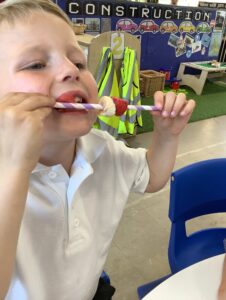
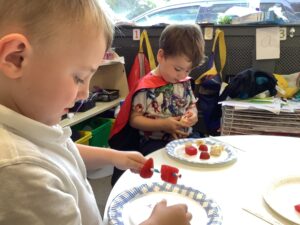
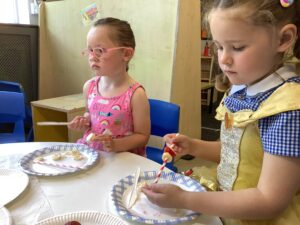
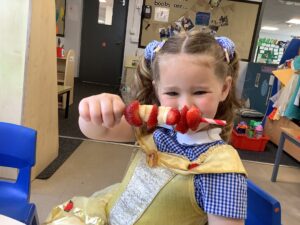
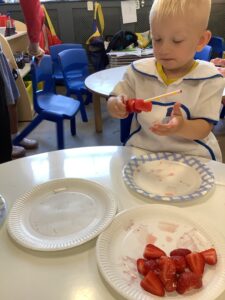
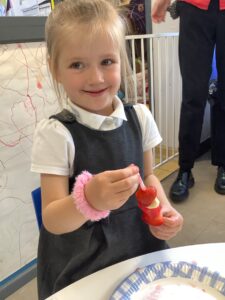
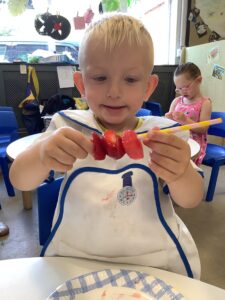
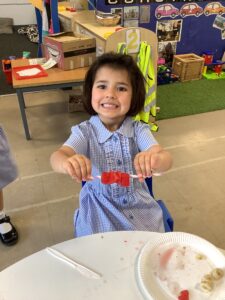
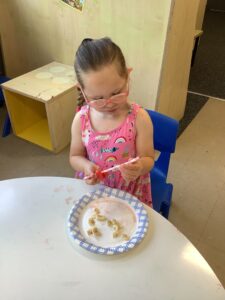
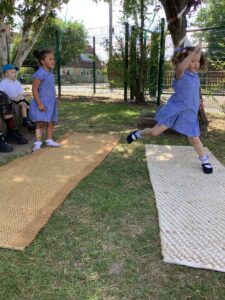
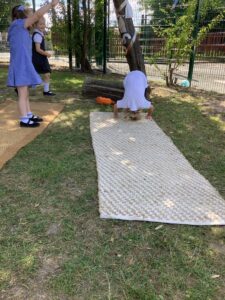
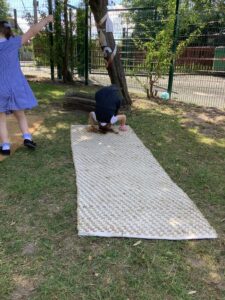
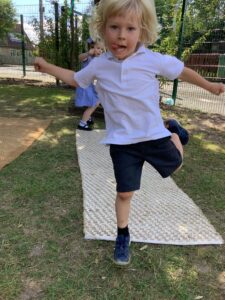
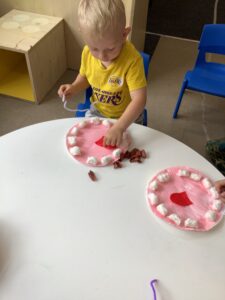
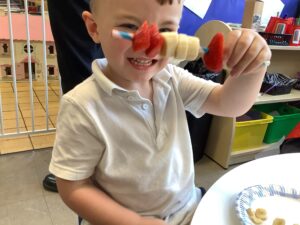
08 July 2022
This week, we would like you to practise a mixture of all the spelling patterns we’ve been learning this half term. Please learn these words for a test next week.
- chronology
- geographically
- dictionary
- delicious
- ambitious
- anxious
- partial
- substantial
- residential
08 July 2022
Y1: day play say boy toy annoy said is
Y2: happier happiest replies replied copies copied copier didn’t can’t hasn’t

08 July 2022
I can share my views about health.
We’re proud to be a happy and healthy school.
Each year, we ask you to complete a short health questionnaire. Your views can help us to become even happier and healthier.
Parents/carers: please complete this survey with your child, to find out their views on some of our key health issues at school, and comment at the end. You can find the link to the survey in the Homework page of our school website.
Please submit before Friday 15 July 2022.
This week’s message (Friday 08 July 2022)
It’s a busy time of year in school. Sports day, productions, reports… This week, you should have received an end-of-year report for your child – if you haven’t, please let us know.
At this time of year, you might be already thinking about uniform for next year. This week’s message starts with a reminder that we’ve updated our school uniform policy…
School uniform
Due to a recent change in guidance about school uniform, we’ve recently updated our school uniform policy.
Wearing a school uniform brings with it many benefits, and everyone following the policy brings a sense of fairness.
There’s no change as to what uniform is required in our policy: as has always been the case, branded items are available, but they’re optional. As well as having at least three suppliers for branded items (with different price ranges), you’re able to purchase generic items from a range of retailers, giving you choice and value for money. Second hand uniform items can also benefit parents / carers and, by extending the life of items, are more sustainable. Some items may be available in school (unclaimed and unnamed lost property at the end of term) or at the Leeds School Uniform Exchange. Check out the website for more information on suppliers and the policy.
We do expect all children to follow this policy, including wearing the correct kit on PE days.
Thank you for supporting us with this.
TikTok
Last week’s message mentioned TikTok. Here’s an extract from a weekly email we receive from a safeguarding expert:
A few days ago I spent a rather disturbing half-an-hour on TikTok… Clicking in to TikTok Live was worse than I had thought it would be… there were a number of video streams that I think should concern us from a safeguarding perspective. Livestreams from the school bus, school playgrounds and even from tutor time in classrooms. There was even a group of primary aged boys trying to out-swear each other while they waited for the bell.
Check out these parents’ guides: one from Common Sense Media and one from Internet Matters.
Some summer reading
You might like to read the latest edition of Raring2go. It’s got lots of ideas for the Summer holidays.
Some summer support
The approach to providing free school meals during holidays has changed in line with government guidance.
As a result of this change in government guidance, Leeds City Council has decided to support those households in receipt of council tax support. This will include most households receiving free school meals but this will no longer be the driver of eligibility. More detail on how the council is spending the funding can be found here.
Anyone in urgent need of support for food, rent and other household bills can contact the Leeds Welfare Support Team. Details are available at: Help with food and bills (leeds.gov.uk). The Healthy Holidays scheme will also continue to provide support during the summer holidays to those most in need.
The forecast is looking good… Have a happy and healthy weekend!
Living and Learning: PANTS ARE PRIVATE
Today, we discussed the very important NSPCC Underwear rule and the biological differences between boys and girls.
I was so impressed with the children’s mature attitudes during this lesson.
Ask your child about this learning at home.
Speak up, someone can help
We discussed the importance of talking about issues that can make us worried or upset.
If you ever feel sad, anxious or frightened you should talk to an adult you trust. This doesn’t have to be a family member. It can also be a teacher or a friend’s parent – or even Childline.
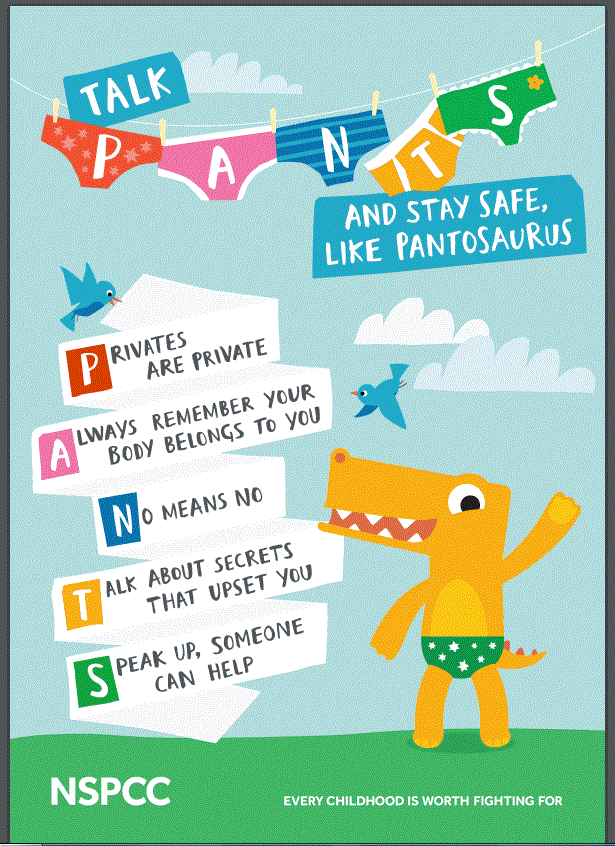
Tropical World
Today, Reception enjoyed a day out to Tropical World.
They were super excited when they saw the coach!
Their behaviour was impeccable. It was a pleasure taking them all on their first school trip.
In the morning, we enjoyed looking at all of the different animals/creatures in Tropical World. At lunchtime, we sat and had a picnic in the Tropical World gardens. After lunch, on the way to our workshop, we ran off some energy in Roundhay Park.
Click here to watch some of the highlights from our trip.
Super Sports Day!
As the sun shined, we all thoroughly enjoyed our Key Stage 2 sports day of summer 2022.
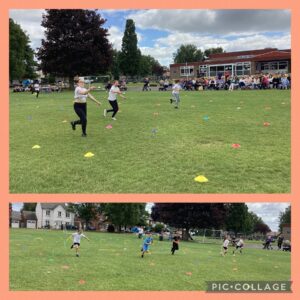
The children were fantastic and participated in sprint, sack, egg and spoon and obstacle races just to name a few!
To finish off, we enjoyed watching some very brave younger sibling and parents as they competed in running races.
A huge thank you to the parents who could come to support and cheer the children on!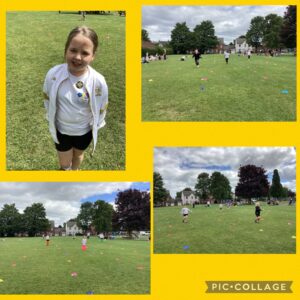
Sports Day
Well done to all the children for showing resilience and determination in their races! Thank you to everybody who came and supported the children at our Sports Day.
